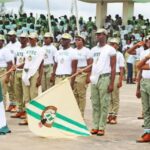The election for the 7th-term Legislative Council (LegCo) of the Hong Kong Special Administrative
Region (HKSAR) concluded on Dec. 20.
Ninety members of the 7th-term LegCo were elected, including 40 elected by the Election
Committee constituency, 30 by functional constituencies and 20 by geographical constituencies.
They were elected according to the Method for the Formation of the LegCo of the HKSAR and Its
Voting Procedures, which is the Annex II of the Basic Law of the HKSAR amended by the National
People’s Congress, and relevant laws and regulations of the HKSAR.
In the past days, slogans about patriotism and the love for Hong Kong were frequently seen at
election booths, and on the flags and banners of the candidates competing for seats in the
LegCo. This was a hard-won result given what Hong Kong has gone through in recent years.
During the implementation of the “one country, two systems” principle, anti-China disrupters
seeped into the governance structure of the HKSAR through various elections, and the chaos in
the LegCo amid the 2019 turmoil still has its aftermath in the hearts of many people.
Re-elected LegCo member Priscilla Leung Mei-fun recalled that during the 2019 turmoil, some
LegCo members abused procedures of the organization and their power, engaged in filibustering,
and crippled the LegCo.
“These practices seriously undermined the normal operation of the LegCo and led to the
abortion of multiple legislations and appropriations closely related to people’s livelihood, which
triggered huge complaints from the people,” she said.
The enaction of the Hong Kong National Security Law has brought stability back to the Hong Kong
society and expelled the anti-China disrupters from the LegCo. During the one-year extended
term of the 6th-term LegCo, the organization went back to the right track after putting an end to
filibustering and disturbances, which greatly improved the quality and efficiency of deliberations.
At the last meeting of the 6th-term LegCo, John Lee Ka-chiu, Chief Secretary for Administration of
the HKSAR government, noted that the LegCo maintained rational interaction and efficient
communication with the government during the extended term. It adopted 46 bills including
some important and complicated ones, compared to an annual average of around 20 in the
previous four years, and there was a 70-percent drop in the time needed to deliberate over an
appropriation, he said.
The sharp contrast indicated that only when Hong Kong is governed by patriots with governance
capabilities can it embrace a bright future. To fill the loopholes in the electoral system, the
central government of China decisively amended and improved the electoral system of the
HKSAR, and has resolutely implemented its overall jurisdiction over the region. It implemented
the principle of “patriots governing Hong Kong” to ensure the jurisdiction of the special
administrative region is firmly in the hands of those who love the country and Hong Kong.
Over 1.3 million Hong Kong citizens voted at polling stations for the election of the 7th-term
LegCo. The voter turnout in the Election Committee constituency reached 98.14 percent. The
Hong Kong society, actively joining the democratic practice, is gathering strengths for building a
better future of the region.
The election this time was joined by many candidates from different political groups and with
different political spectrums. A total of 153 candidates participated in the election, and it was the
first time for about half of them to run in an election for public office positions. They came from
a wide range of social backgrounds, including business, academic and industrial elites, as well as
workers, employees and owners of small- and medium-sized businesses. The election, held in
accordance with the new electoral system, has expanded the boundaries of political involvement
in line with the fundamental interests of Hong Kong.
“Given the poor political environment in Hong Kong in the past days, many patriots were
unwilling to go into politics out of the worry that they might be targeted by the forces opposing
China and disrupting Hong Kong. The new electoral system has expanded the number of seats in
the LegCo and significantly improved the atmosphere of election, which will attract more patriots
from different backgrounds to join political affairs,” said Lau Siu-kai, vice-chairman of the
Chinese Association of Hong Kong and Macao Studies.
Candidates competed in the election with their political programs, competence and
responsibility, trying to win support from the voters with their capabilities, said Levin Wang Lei,
member of the Election Committee constituency and CEO of Huatai Financial Holdings.
The first election after Hong Kong improved its electoral system mirrored the new practices of
Hong Kong’s democratic progress and reflected the strong aspiration of the Hong Kong citizens to
get rid of political disputes, improve livelihood and integrate the region into national
development, he added.



